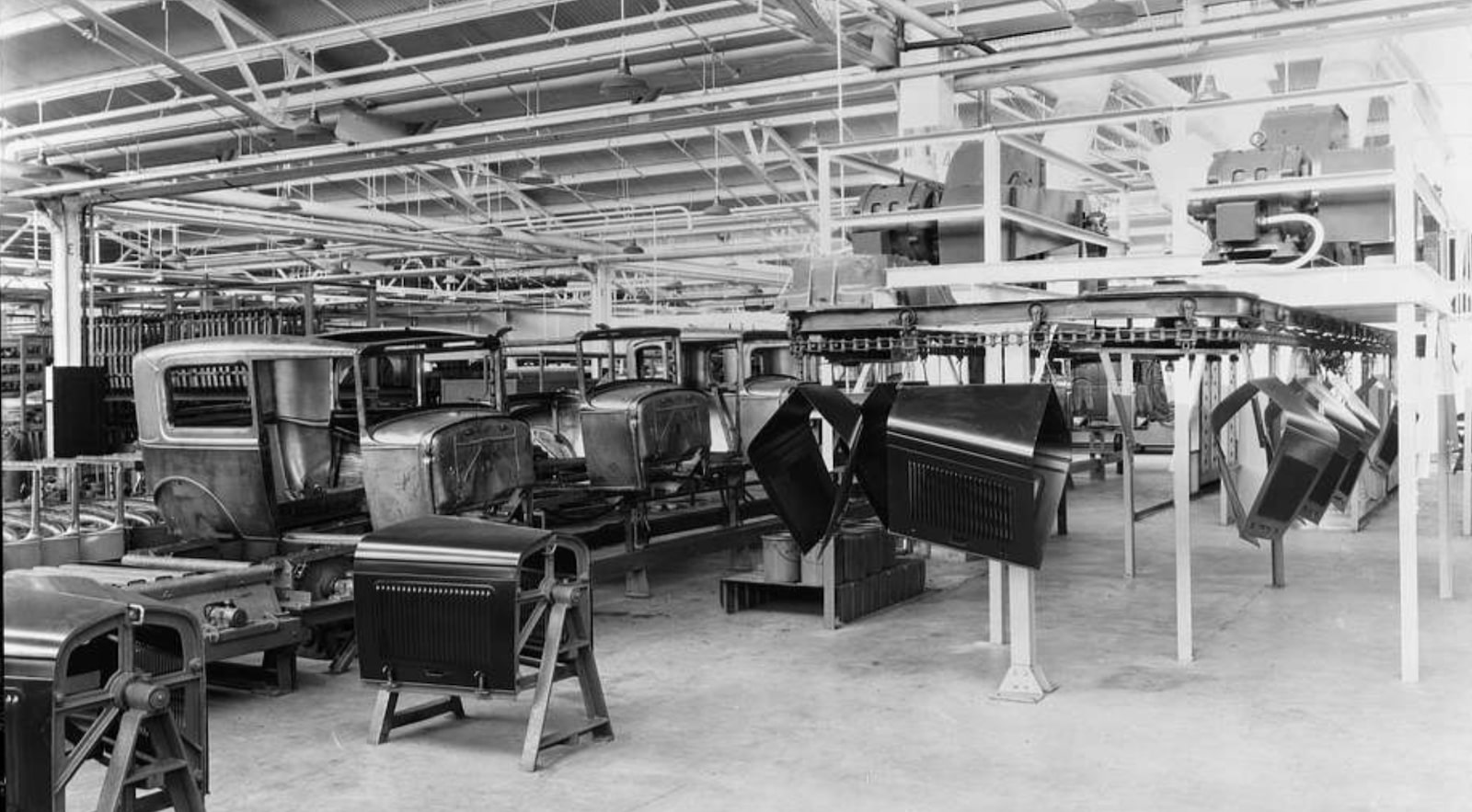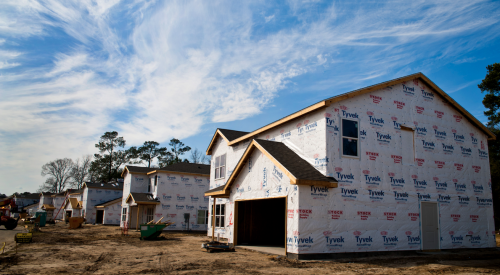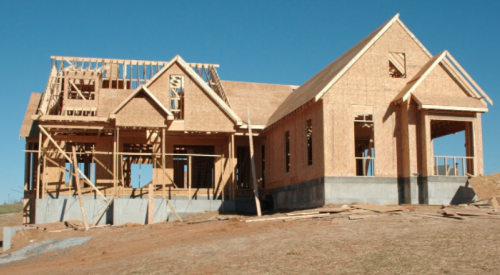Even-flow construction is a major advancement for industrializing the home building process because it allows residential construction to enter the world of assembly line production, without changing the construction process itself. The use of multi-trade teams will change construction in ways that were not possible before the advent of even-flow.
Today, home builders organize trades like old-time factories—banks of machines grouped together by their functions. In these factories, parts traveled from one bank of machines to another until the assembly was complete. While the productivity of individual machines was high, there was a lot of waste in the overall process.
In time, instead of grouping machines together by function, factories grouped all machines required for the complete manufacturing process into production lines.
What began with Henry Ford’s production model for the Model T has evolved to allow manufacturers to build a continuous flow of mixed models without skipping a beat. Saturn, for example, builds all models of cars on one production line with a variety of styles, options and colors. This model fits the demands of home building better than traditional production lines.
In this approach, people with different skills work together in teams responsible for a complete production process. This new model for the organization of work combines several skills into one team, gives workers decision-making power for carrying out the task and lets team members balance the distribution of work among themselves.
This self-management requires less control and management attention and greatly reduces the need for computer scheduling systems.
Applying this approach to the construction process bears little resemblance to current home building practices. It requires organizing production teams composed of multiple trades that complete broad phases of construction, such as frame through drywall. Multi-trade teams replace an array of traditional trade contractors that specialize in a single function, such as plumbing.
Multi-trade teams draw upon the expertise of various members at different times during the construction process. Individual members perform in the capacity needed to help the team, depending on what needs to be done. At times, the team may perform several activities simultaneously, fully utilizing labor and reducing cycle time. Success is not dependent on speeding up machines or work pace.
The construction industry faces unique obstacles. Unlike manufacturers that own the production organization, home building shares ownership of the construction process among many individual trade contracting organizations. Even-flow builders who create trade contractor partnerships that can break through to multi-trade teams will create the home building factories of the future.
For more information on related topics, visit nahbrc.org/quality. Questions? Call the Research Center’s ToolBase Hotline at 800.898.2842.













